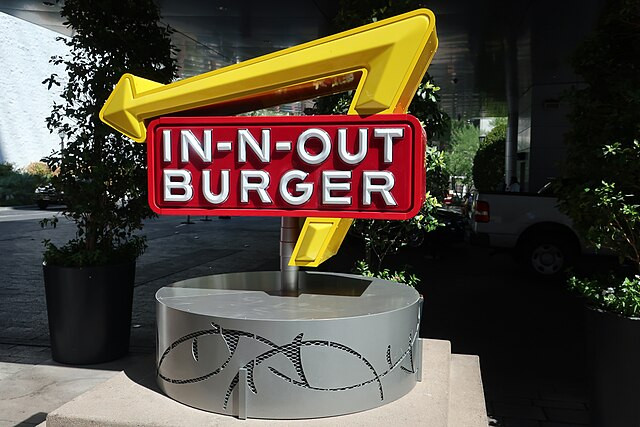In-N-Out Burger, the beloved West Coast fast food chain, has raised prices at its California locations following the state's recent increase in the minimum wage for fast food workers. The price hike, which took effect on April 1, is directly tied to the mandated wage increase from $16 to $20 per hour, a significant change aimed at improving conditions for fast food employees.
"We raised prices in California restaurants to accompany a raise given to the Associates at those locations," stated Denny Warnick, Chief Operating Officer of In-N-Out, in an announcement on Thursday. The adjustment has seen the cost of a Double-Double burger, fries, and a drink rise by $0.25 to $0.50, depending on the location.
The Fast Act, which triggered this wage hike, was signed into law by Governor Gavin Newsom in September. The law specifically targets larger chains with at least 60 locations nationwide, except for those that produce and sell their own bread. Governor Newsom emphasized the importance of the legislation, stating, "California is home to more than 500,000 fast-food workers who - for decades - have been fighting for higher wages and better working conditions."
In-N-Out President Lynsi Snyder had previously assured customers that price increases would not be drastic. In an interview with NBC's TODAY in April, Snyder expressed her commitment to keeping costs manageable for customers. "I was sitting in VP meetings going toe-to-toe saying, 'We can't raise the prices that much, we can't,'" Snyder said. "Because I felt such an obligation to look out for our customers."
Despite these assurances, the price adjustments have been noticeable. In Los Angeles County, the price of a Double-Double combo has increased by $0.76 from last year's price, now costing $11.44. Similar price increases have been reported in San Francisco and Daly City. Starting wages for In-N-Out employees in California are now between $22 and $23 per hour, reflecting the chain's commitment to staying ahead of the state's minimum wage requirements.
Customers have had mixed reactions to the price hikes. Some, like Chris Hachlica from Pittsburg, California, understand the economic pressures driving the increases. "The price increase? I understand because the economy's kind of bad. Food's going up, all type of stuff," Hachlica told KTVU. However, he noted that as long as prices do not exceed $20 for a meal, he is content.
The economic backdrop of these changes is marked by stubborn inflation, which has compounded with the wage hikes to squeeze both businesses and consumers. According to the Bureau of Labor Statistics, fast food prices have risen 4.8% since last year and 47% since 2014. A recent USA Today report highlighted that the average cost of a medium Big Mac meal has increased from $5.69 in 2014 to $9.72 in 2024, a 70% rise. In some locations, such as Seattle, the price can be as high as $15.
Consumers like Khalil Coleman, who recently moved to Oakland from Georgia, have been struck by the high costs. "Especially coming from Georgia, California prices are a little bit higher," Coleman said. "But when I came to In-N-Out and I was spending $20 on a meal, it's definitely something that I did not expect at all."
In addition to the economic pressures, the Federal Reserve has been working to manage inflation by adjusting interest rates. Policymakers are currently grappling with the decision of whether to hold rates steady or make further adjustments, with the goal of bringing inflation down to a target increase of 2%.






